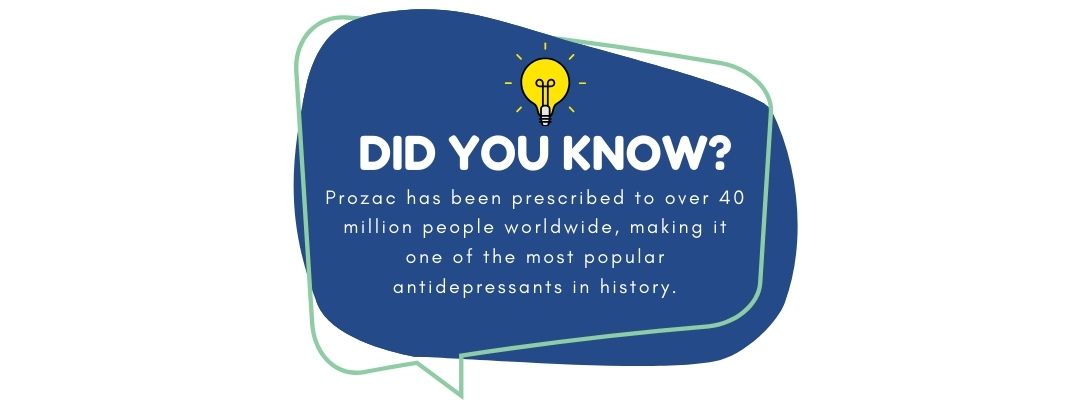Is Prozac Addictive? Understanding Its Potential Risks and Benefits
Is Prozac addictive? Prozac, a widely prescribed antidepressant, often raises questions about its potential for addiction. Many people wonder if taking this medication could lead to dependence or other complications. Prozac is not considered a controlled substance and is not generally viewed as addictive, but it can cause withdrawal symptoms if stopped suddenly.
While it helps balance brain chemicals, understanding the difference between psychological dependence and addiction is crucial. Some individuals may experience cravings or feel the need to continue its use, which can complicate their treatment. It’s essential for anyone considering or currently using Prozac to be well-informed about its effects and the proper way to discontinue use if needed.
Key Takeaways
- Prozac is not classified as an addictive drug.
- Withdrawal symptoms may occur if the medication is stopped abruptly.
- Awareness of treatment options can help manage any potential risks.
What Is Prozac?
Prozac is a commonly prescribed medication that plays a critical role in treating various mental health conditions. It is important to understand its definition, therapeutic uses, and the mechanism by which it operates in the brain.
Prozac Definition
Prozac is the brand name for the drug fluoxetine. It belongs to a class of medications known as selective serotonin reuptake inhibitors (SSRIs). This class of drugs is primarily used to treat mood disorders. Prozac works by increasing the levels of serotonin, a neurotransmitter that significantly influences mood and emotional well-being.
The drug was first approved by the FDA in 1987 and has since become one of the most widely used antidepressants. It is available in various forms, including tablets and liquid. Prozac is not classified as a controlled substance, meaning it does not have the same potential for abuse as other medications.
Therapeutic Uses
Prozac is primarily used to treat major depressive disorder. Additionally, it is effective for conditions such as generalized anxiety disorder and obsessive-compulsive disorder (OCD). It can also be used to manage panic disorder and bulimia nervosa.
Patients may benefit from Prozac’s ability to improve mood, reduce anxiety, and enhance overall quality of life. Some studies suggest it may also help with premenstrual dysphoric disorder (PMDD) due to its mood-stabilizing effects. The medication is typically prescribed as part of a comprehensive treatment plan that can include therapy and lifestyle changes.
Mechanism of Action
Prozac’s effectiveness lies in its mechanism of action. It selectively inhibits the reuptake of serotonin in the brain. By blocking the serotonin transporter (SERT), it increases the availability of serotonin in the synaptic cleft. This boost helps to stabilize mood and alleviate symptoms of depression and anxiety.
Unlike some other antidepressants, Prozac does not cause sedation. This makes it a suitable option for patients who may have fatigue-related symptoms. Understanding this mechanism helps patients and healthcare providers make informed decisions regarding treatment plans.
Per the American Psychological Association, In the United States, approximately 45 million people use antidepressants, including Prozac (fluoxetine), annually. This number represents a significant portion of the population across various age groups, highlighting the widespread role of antidepressants in mental health treatment. Prozac, approved in 1987, was one of the first selective serotonin reuptake inhibitors (SSRIs) and remains widely prescribed today
Understanding Addiction: Is Prozac Addictive?
Addiction is a complex condition that can manifest in various forms. It is important to differentiate between basic concepts of addiction and the types of dependence that can develop as a result of substance use.
Addiction Basics
Addiction is often defined as a chronic condition marked by compulsive behavior and a strong desire to use a substance, despite harmful consequences. It can involve both physical and psychological elements.
Key elements of addiction include:
- Compulsive Use: The individual feels a need to continue using the substance.
- Loss of Control: There is difficulty in cutting down or stopping the substance use.
- Negative Impact: The addiction interferes with daily life, relationships, work, or health.
While some substances lead to clear physical dependence, others may cause psychological cravings that are equally powerful.
Physical vs Psychological Dependence
Physical Dependence occurs when the body adapts to a substance, leading to withdrawal symptoms if the substance is stopped. For example, opioids and alcohol can create a strong physical dependence, requiring careful management when discontinuing use.
Psychological Dependence involves emotional and mental processes. An individual may become reliant on a substance for coping, mood regulation, or stress relief. They may crave the substance not for physical need, but for the feelings or emotions it brings.
Both types of dependence can impact a person’s behavior and decision-making, making recovery challenging. Understanding these differences is essential for addressing addiction effectively.
Prozac and Dependence
Prozac can lead to a state of dependence in some individuals, though it is not classified as an addictive substance. Understanding the risk factors and recognizing the signs of dependence can help in managing its use effectively.
Risk Factors for Dependence
Several factors can contribute to the risk of developing dependence on Prozac. Individuals with a history of mental health issues, such as anxiety or depression, may be more susceptible. These conditions can create a strong reliance on medication for stability.
Other risk factors include:
- Long-term Use: Extended use of Prozac may increase the likelihood of dependence.
- Dosage: Higher doses may heighten the potential for dependence.
- Personal History: A history of substance use or dependence can also play a significant role.
Recognizing these factors can help in assessing the use of Prozac and its potential for dependence.
Signs of Prozac Dependence
Signs of dependence on Prozac can vary from person to person. Some common indicators include:
- Withdrawal Symptoms: Experiencing symptoms such as mood swings or anxiety when missing doses.
- Increased Tolerance: Needing a higher dose to achieve the same effect.
- Psychological Craving: Feeling anxious when thinking about reducing or stopping the medication.
Other signs may include difficulty managing daily activities without the medication or a strong preoccupation with obtaining it.
Being aware of these signs is crucial for individuals taking Prozac, ensuring they receive the proper support and guidance if dependence develops.
Prozac Withdrawal
Prozac withdrawal can occur when a person stops taking the medication suddenly. Knowing the symptoms and how to manage them is crucial for anyone considering discontinuing use.
Withdrawal Symptoms
Withdrawal symptoms can vary from person to person. Common effects include:
- Mood swings: Individuals may experience increased anxiety or sadness.
- Physical symptoms: These can include headaches, dizziness, and fatigue.
- Sleep disturbances: Many report insomnia or vivid dreams.
- Gastrointestinal issues: Nausea or changes in appetite can occur.
These symptoms may not appear immediately. For some, they can take weeks to onset, yet last around two months. Understanding these symptoms can help individuals prepare for the challenges of withdrawal.
Management of Withdrawal
Managing Prozac withdrawal effectively is important to minimize discomfort. Here are some strategies:
- Consulting a Healthcare Provider: It is vital to have medical support. A doctor can provide a tapering schedule to gradually reduce dosage and lessen withdrawal effects.
- Staying Hydrated: Drinking plenty of water can help alleviate symptoms like headaches and gastrointestinal issues.
- Rest and Sleep: Prioritizing rest aids recovery. Establishing a calming bedtime routine can improve sleep quality.
- Support Systems: Engaging with friends, family, or support groups can provide emotional backing. Sharing experiences can ease the burdens of withdrawal.
- Healthy Diet: Consuming balanced meals supports overall well-being during this time. Nutrient-rich foods can positively impact mood.
These management techniques can make the withdrawal process more manageable and less distressing.
Treatment and Prevention
When considering the use of Prozac, it is essential to focus on safe usage practices and potential alternatives. Understanding these aspects can help manage mental health without compromising well-being.
Safe Use of Prozac
Safe use of Prozac involves following a healthcare provider’s directions closely. Dosage should be consistent, as prescribed, to reduce the risk of withdrawal symptoms. Patients should avoid abrupt discontinuation to prevent negative reactions.
Regular monitoring by a doctor is crucial, especially for younger patients. The FDA has approved Prozac for children aged 8 years and older, but careful consideration must be given for this group.
Patients must communicate openly with their healthcare provider about any side effects. Common side effects of Prozac may include nausea, insomnia, or dizziness. Addressing these issues promptly can help ensure safe and effective treatment.
Alternatives to Prozac
For individuals concerned about the use of Prozac, several alternatives exist. Other SSRIs, like Zoloft or Lexapro, may offer similar benefits with different side effects.
Counseling and therapy options, such as cognitive behavioral therapy (CBT), are also effective. They provide coping strategies without the need for medication.
Natural remedies, like supplements and lifestyle modifications, can support mental health too. Options include omega-3 fatty acids, regular exercise, and mindfulness practices.
It is essential to discuss these alternatives with a healthcare provider before making changes. Each person’s response to treatment can vary significantly, making professional guidance important.
Frequently Asked Questions
This section addresses common inquiries regarding Prozac. It covers dependency potential, side effects, comparisons with other medications, withdrawal symptoms, and considerations for discontinuation.
Can long-term use of Prozac lead to dependency?
Long-term use of Prozac does not typically lead to physical addiction. However, some individuals may develop a psychological dependence. This can occur if they rely on the medication to manage their mood or anxiety without other coping strategies.
What are the commonly reported side effects of Prozac?
Prozac can cause various side effects. Common ones include nausea, headaches, fatigue, and changes in sleep patterns. Some people may also experience changes in appetite or sexual dysfunction.
How does Prozac compare with benzodiazepines like Xanax in terms of addiction potential?
Prozac has a lower potential for addiction compared to benzodiazepines such as Xanax. Benzodiazepines can cause physical dependence and withdrawal symptoms. Prozac, classified as an SSRI, does not produce the same euphoric effects.
Are there withdrawal symptoms associated with discontinuing Prozac?
When discontinuing Prozac, some people may experience withdrawal symptoms. These symptoms may include dizziness, irritability, and flu-like symptoms. Gradually tapering off the medication can help minimize these effects.
Is Prozac known to induce a state of euphoria?
Prozac is not known to induce euphoria. Its primary function is to regulate mood by increasing serotonin levels. Unlike some medications that can cause feelings of extreme pleasure, Prozac aims to stabilize mood over time.
What should be considered before deciding to stop taking Prozac?
Before stopping Prozac, it is crucial to consult a healthcare professional. Consideration should be given to symptoms, treatment goals, and potential withdrawal effects. A doctor’s guidance can ensure a safe discontinuation plan tailored to the individual’s needs.
Conclusion
Is Prozac addictive? While Prozac is not classified as an addictive substance, it is essential to approach its use responsibly. Dependence, particularly psychological, can occur in some individuals, and withdrawal symptoms may arise if the medication is discontinued abruptly. By understanding Prozac’s mechanisms, risks, and benefits, individuals and healthcare providers can make informed decisions that prioritize mental health and overall well-being. Safe usage, coupled with professional guidance and, if needed, exploring alternative treatments, ensures that Prozac remains an effective and valuable tool in mental health care.
You’re not alone, and help is always within reach. Contact us today at (774) 619-7750 and take control over your mental health.





